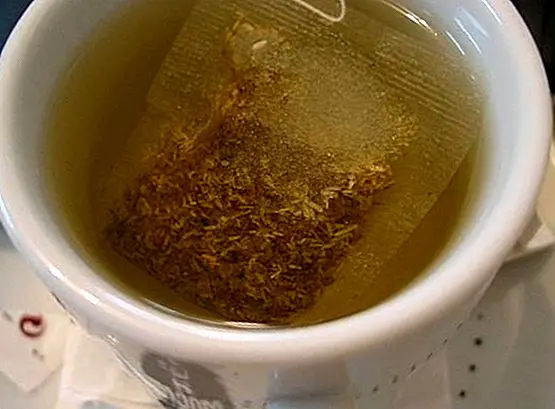Kuzu (Kudzu): what it is, benefits and recipe
The kuzu (also know as kudzu) is an extremely popular ingredient in Japan, where it is precisely known for its delicate texture, above all because it does not contain gluten and because it is also very easy to digest.
It consists of the starch that is extracted from the root of a plant known scientifically with the name of Pueraria lobata, a species of flowering plants that belong to the family Fabaceae (legumes), which is commonly used in Traditional Chinese Medicine where it is known by the name of gé gēn.

In the kitchen is used as thickener, so that a teaspoon of kuzu equivalent to two tablespoons of wheat flour or a tablespoon of cornmeal. And it becomes an ideal ingredient for celiacs, since it does not contain gluten.
In fact, kuzu starch is of higher quality than wheat, corn, potato or sweet potato starch. In Japan, as we indicated, it is a very common food, where it is common to use it for the preparation of buns filled with bean marmalade, a traditional Japanese dessert.
Benefits of kuzu
- Intestinal regulator: thanks to its content in different isoflavones, such as daidzein and puerarine. It acts both in case of constipation and diarrhea when regenerating the intestinal flora. On the other hand it also exerts antimicrobial and anti-inflammatory effects.
- In case of fever: helps reduce fever, while improving symptoms related to both colds and flu states, bronchitis and coughing.
- Relieves headaches: it has an interesting efficacy in case of migraines, being useful also for vertigo.
- Revitalizes the organism: reduces chronic fatigue by being a natural invigorator, increasing both physical and mental resistance.
- Useful against fatigue:It helps to revitalize the organism in a totally natural way. Reduces chronic fatigue and increases physical and mental endurance. It is a good energizer of natural origin.
- Helps to alkalize the blood.
- Strengthens respiratory mucosa:not only strengthens them, but improves symptoms related to flu states, colds, coughing and bronchitis.
- Beneficial in pregnancy:being a food that could be considered as neutral provides interesting qualities in pregnancy, especially in women who suffer from nausea, dizziness and dizziness, constipation and diarrhea.
The kuzu can be consumed in different ways, although the simplest option is to dissolve it in hot water and drink it as if it were an infusion.

Main uses of kuzu
- In the kitchen: As indicated above, it is usual to use kuzu in the kitchen as it is a good thickener. In this way, a teaspoon of kuzu equals two teaspoons of wheat flour, or a tablespoon of cornmeal. It does not contain gluten, ideal for celiacs. It has a higher quality than potato, wheat, corn and sweet potato starch.
- In medicine: its use in Traditional Chinese Medicine is usual. On the other hand, in our country is expanding its consumption to be a food that does not contain gluten and be ideal for celiac people.
How to prepare kuzu or kudzu at home (recipe)
As we told you, the kuzu It is a very popular ingredient in Japan, where it is precisely known for its delicate texture, above all because it does not contain gluten and because it is also very easy to digest. In this country its use is common in the elaboration of a traditional dessert, consisting of a bun filled with bean jam.
The elaboration of kuzu It is actually very simple, especially when it comes to preparing the traditional decoction of basic kuzu to be able to enjoy its different qualities.

You need
- 1 teaspoon of kuzu
- 1 glass of water
Elaboration of the decoction of kuzu
- In a saucepan put the equivalent to a glass of water.
- Add a teaspoon of kuzu.
- Let it boil over low heat, stirring constantly with the help of a wooden spoon until the kuzu dissolves.
- Serve in a glass or cup, and drink slowly without it getting to cool completely.
Of course, keep in mind something fundamental: it is not advisable to sweeten the drink. This article is published for informational purposes only. You can not and should not replace the consultation with a Nutritionist. We advise you to consult your trusted Nutritionist.


